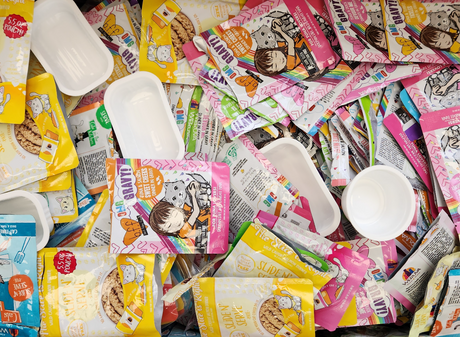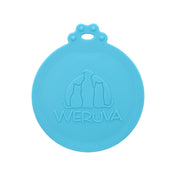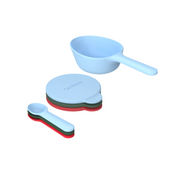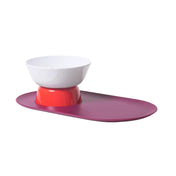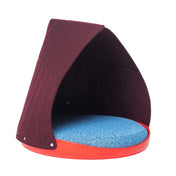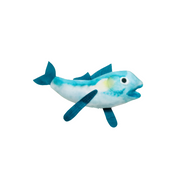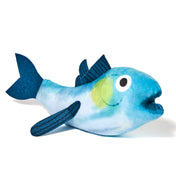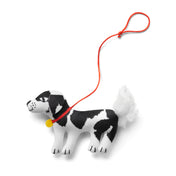In recent years, the buzz around superfoods has transcended human nutrition and is making its way into our pets' diets. Ever responsive to consumers' growing nutrition awareness, the pet food industry has begun integrating these nutrient-dense ingredients into products like food and treats.
Superfoods, known for their dense nutritional profile and health-enhancing properties, have emerged as key ingredients in this nutritional evolution. By incorporating such ingredients, pet food brands contribute to a more health-conscious pet care paradigm, where the focus is as much on preventive care through diet as on taste and palatability.
Key Superfoods in Pet Nutrition
Salmon
Salmon stands out in the pet food aisle for its exceptional omega-3 fatty acid content, particularly EPA and DHA. These fatty acids are crucial for maintaining healthy skin and lustrous coats, reducing inflammation, and supporting cognitive function. Beyond its celebrated omega-3s, salmon is a superb source of high-quality protein and essential amino acids, making it a holistic superfood choice for pets. Incorporating salmon into pet diets supports cardiovascular health and promotes a healthy immune system.
Green-Lipped Mussel
The New Zealand green-lipped mussel is a noteworthy superfood increasingly used in pet foods and supplements. This mollusk is packed with nutrients, including a unique combination of omega-3 fatty acids, which have been shown to reduce inflammation and pain associated with joint issues and arthritis in pets.
The green-lipped mussel is also rich in glycosaminoglycans (GAGs), the building blocks of cartilage and joint fluid, offering further joint support. Its inclusion in diets is particularly beneficial for senior pets or those with mobility issues.
Pigmented Rice
Pigmented rice, with its spectrum ranging from red to purple and black, offers more than just a colorful addition to pet food. It's a powerhouse of antioxidants, particularly anthocyanins, which have been linked to numerous health benefits, including reduced risk of chronic diseases, enhanced brain function, and better heart health.
Additionally, pigmented rice is a rich source of dietary fiber, promoting digestive health, and its complex carbohydrates ensure a slow and steady release of energy. This makes pigmented rice an excellent ingredient for sustaining energy levels in active pets.
Turmeric and Ginger
Turmeric and ginger are renowned for their medicinal properties, making them a welcome addition to any pet's diet. Turmeric, with its active compound curcumin, offers powerful anti-inflammatory and antioxidant properties, helping to alleviate arthritis symptoms and improve digestive health. Ginger complements turmeric by easing digestive upset and nausea, and its anti-inflammatory properties can help with soreness and joint pain. Together, these spices support overall wellness, offering a natural means to enhance pet immunity and vitality.
Quinoa
Celebrated for its nutritional completeness, Quinoa is an ancient grain and a source of all nine essential amino acids, making it a high-quality protein source for pets. It's also rich in fiber, vitamins, and minerals, including magnesium, iron, and B vitamins, supporting everything from energy production to muscle health and neurological function. Quinoa's inclusion in pet food taps into its ability to provide sustained energy, promote healthy digestion, and ensure a well-rounded diet for pets' overall health.

Flax and Chia Seeds
Chia and flax seeds are tiny powerhouses of nutrition. They are recognized for their impressive omega-3 fatty acid content, vital in maintaining healthy skin and coat, reducing inflammation, and supporting cognitive functions.
These seeds are also high in fiber, which can aid digestion and help maintain a healthy weight. Their antioxidant properties contribute to overall health by combatting oxidative stress and supporting the immune system. By including these seeds in pet diets, manufacturers offer a natural, nutrient-dense component that promotes holistic health.
Coconut Oil
Incorporating coconut oil into your pet's diet can help improve their skin and coat, providing a glossy shine and reducing itchy, dry skin. Its antifungal properties can also help improve overall skin health. When used sparingly, coconut oil can be an excellent addition to your pet's nutritional regimen, enhancing their well-being with a touch of natural goodness.
Papaya
Rich in vitamins A, C, and E and digestive enzymes like papain, papaya can help support your pet's digestive health and boost its immune system. The enzymes in papaya, particularly papain, help enhance digestive health by breaking down proteins and aiding digestion. As an ingredient in pet food, papaya can contribute to a well-rounded diet, promoting a healthier immune system and assisting in maintaining vital functions.
Sweet Potato
This naturally sweet root vegetable is packed with dietary fiber, aiding in healthy digestion, rich in vitamins A, C, and B6, which support vision health, the immune system, and neurological function. Its low-fat content makes it an excellent option for pets on a calorie-controlled diet. Moreover, the complex carbohydrates in sweet potatoes offer sustained energy, making them an ideal component in balanced meals for our furry companions.
Pumpkin
Pumpkin is a superfood celebrated for its high dietary fiber content, which aids in digestive health, helps regulate bowel movements, and alleviates symptoms of diarrhea and constipation in pets. It's also a great source of essential vitamins and minerals, such as vitamin A, potassium, and iron, which support vision health, immune function, and overall wellness.
The versatility of pumpkin allows it to be easily incorporated into pet foods and treats, making it an accessible superfood for pet owners looking to bolster their pets' dietary profiles.

Give Your Pet the Power of Superfoods!
The evolution of pet food to include superfoods reflects a broader acknowledgment of these ingredients' significant health benefits. As pet owners become more invested in ensuring their pets' nutritional needs are met, the demand for food that supports overall health and well-being will likely grow.
This shift towards superfoods in pet diets signifies a future where pets enjoy the same level of dietary care and attention to health as humans.
The pet food industry will likely continue adopting superfoods, signaling a movement towards more holistic, preventative health care through nutrition. As a result, pet owners can look forward to offering their furry companions meals that are nutritious and integral to maintaining their health and happiness.


